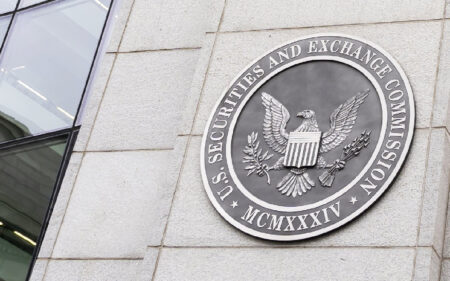Ripple’s Chief Legal Officer, Stuart Alderoty, has expressed constitutional concerns regarding the SEC’s ongoing classification of XRP as a security, despite a court ruling to the contrary. In a post on X on Friday, Alderoty suggested that the SEC’s actions could undermine the legitimacy of regulatory enforcement.
This latest commentary emerged amid a new lawsuit involving the crypto exchange Bitnomial, in which the SEC reiterated its position that XRP is a security. Recall that in July 2023, District Judge Analisa Torres ruled that XRP, on its own, is not a security.
Bitnomial Lawsuit Challenges SEC Over XRP Futures
Bitnomial, a crypto derivatives exchange, recently filed a lawsuit against the SEC in an Illinois district court. It seeks to contest the agency’s claim that Bitnomial’s proposed XRP Futures contract falls under SEC jurisdiction.
Bitnomial had sought approval from the U.S. Commodity Futures Trading Commission (CFTC) to launch the product. However, the SEC warned the exchange that the contract would violate federal securities law unless it adhered to SEC regulations.
In response, Bitnomial contended that the SEC had selectively cited court briefs to support its assertion that XRP is a security, while omitting crucial parts of Judge Torres’ ruling that XRP itself is not inherently a security.
Ripple Executives Respond
Ripple CEO Brad Garlinghouse joined the criticism, labeling the SEC a “renegade agency” in a recent tweet. “The SEC now believes it can operate above the law,” Garlinghouse stated, accusing the regulator of ignoring the court’s decision that XRP is not a security. He also indicated that Ripple is considering its legal options to hold the SEC accountable for its actions.
A new low for a renegade agency many thought couldn’t sink further.
The SEC now believes it can operate above the law, ignoring a Court’s ruling that XRP isn’t a security.
Team Ripple will be watching closely and weighing our own options to hold the SEC accountable. https://t.co/9yMWsNHRde
— Brad Garlinghouse (@bgarlinghouse) October 11, 2024
Garlinghouse’s remarks highlight Ripple’s concerns that the SEC’s approach could undermine judicial decisions and foster an environment where regulatory agencies pressure companies to comply, even after losing in court.
Meanwhile, Ripple’s lead counsel, Alderoty, likened the situation to a hypothetical law school exam scenario where a regulatory agency loses in court but continues threatening enforcement to compel compliance. “This raises major constitutional concerns and further compromises the legitimacy of the agency,” he said.
Disclaimer: The information presented in this article is for informational and educational purposes only. The article does not constitute financial advice or advice of any kind. Coin Edition is not responsible for any losses incurred as a result of the utilization of content, products, or services mentioned. Readers are advised to exercise caution before taking any action related to the company.
Read the full article here









